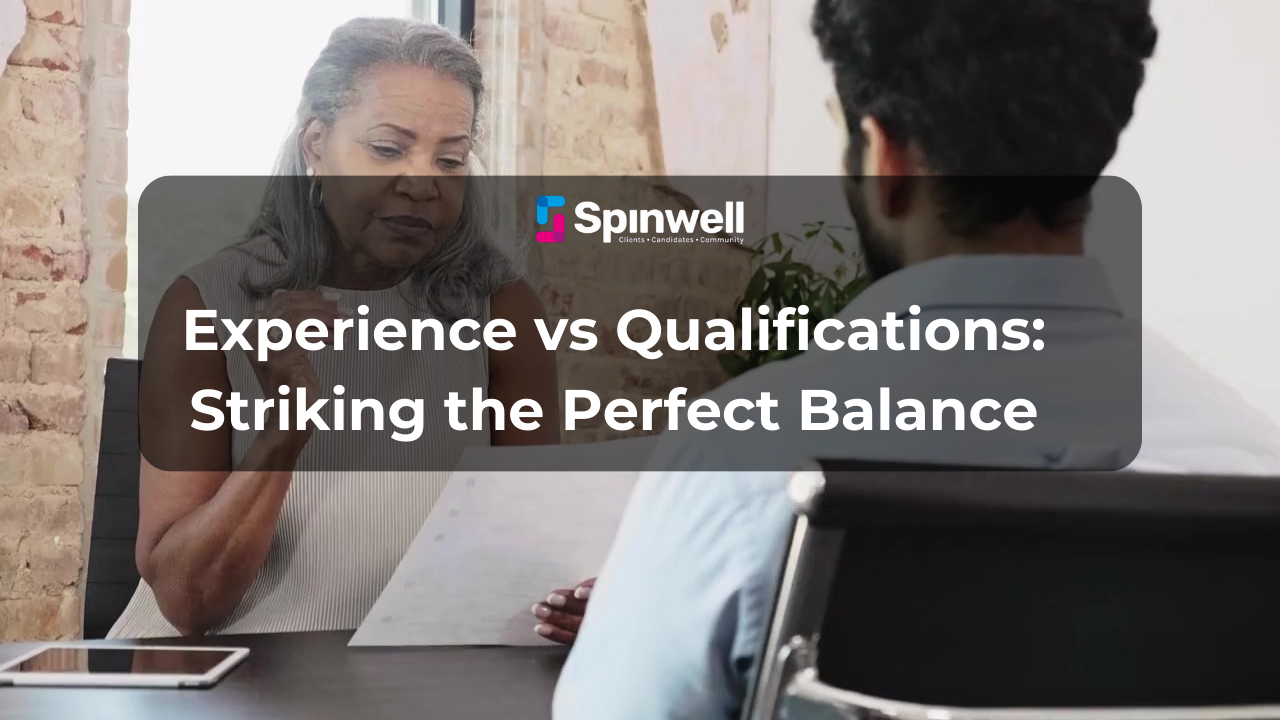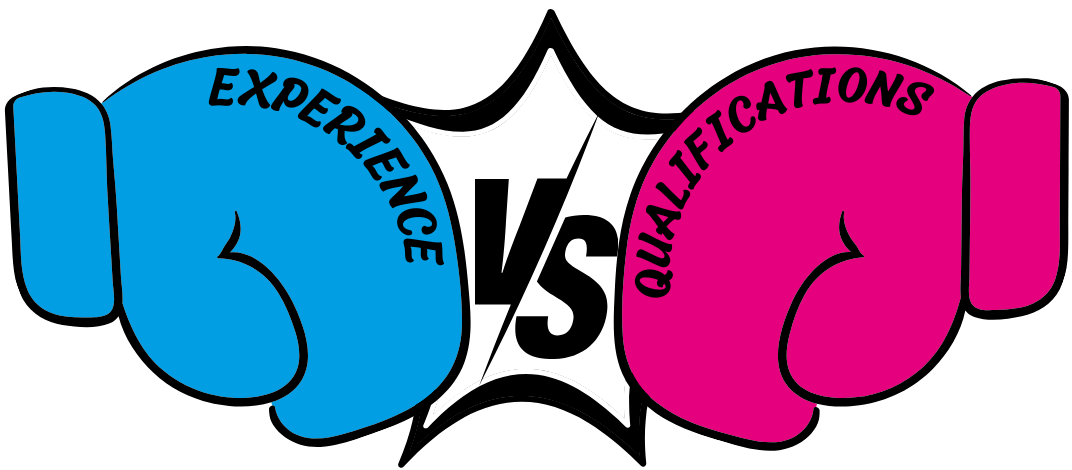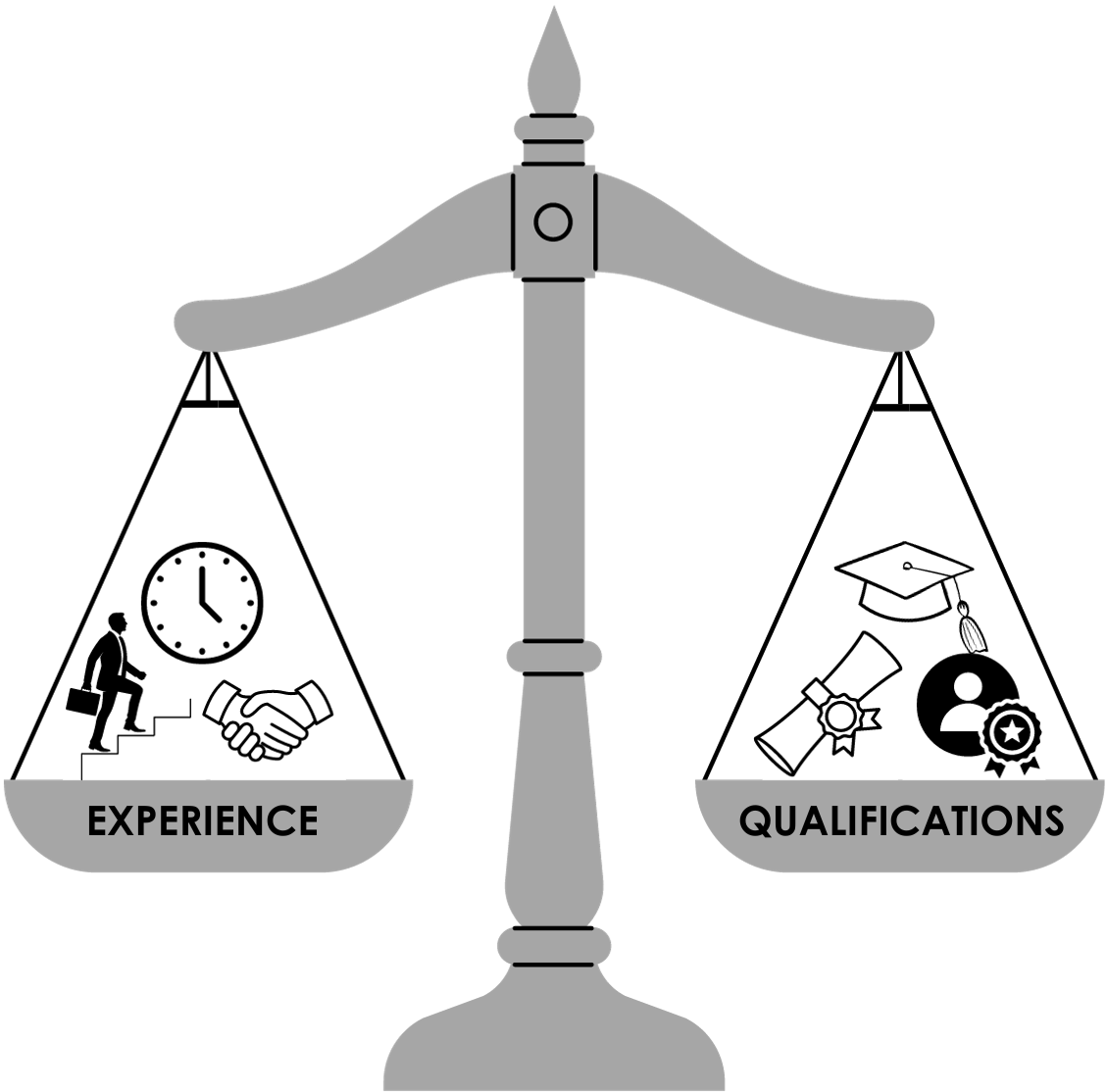

In today’s competitive job market, the debate between experience vs qualifications has become a hot topic. Employers often find themselves torn between candidates with extensive experience and those armed with impressive qualifications. But which holds more value? Is experience truly the best teacher, or do qualifications play a significant role in shaping a successful career?
In this blog post, we will delve into the nuances of this age-old debate and explore the importance of finding the perfect balance between experience and qualifications.
Experience
The Power of Hands-On Learning Experience is the ultimate teacher. It provides invaluable lessons that cannot be taught in a classroom. Through real-life challenges and problem-solving, individuals gain practical skills, adaptability, and resilience.

Experience allows us to put theory into practice, honing our abilities and developing a deep understanding of our chosen field.
When considering experience, employers often prioritize candidates who have proven track records of success. They value the ability to apply knowledge in practical situations, make informed decisions under pressure, and navigate complex scenarios.
Moreover, experienced professionals often possess a wealth of industry-specific knowledge and insights, making them valuable assets to organizations seeking to drive innovation and growth.
Qualifications
While experience is undoubtedly crucial, qualifications provide individuals with a solid foundation of knowledge.

Academic degrees, certifications, and specialized training programs equip individuals with theoretical frameworks, analytical skills, and critical thinking abilities. These qualifications often serve as prerequisites for entry into certain professions, ensuring a baseline level of competence.
Qualifications also demonstrate a candidate’s commitment to learning and their ability to acquire new skills. They showcase a strong work ethic and a desire for personal and professional growth. Moreover, qualifications can open doors to opportunities that may not be accessible solely based on experience, particularly in highly regulated industries or fields where technical expertise is paramount.
Striking the Perfect Balance
Rather than viewing experience and qualifications as opposing forces, it is essential to recognize the power of finding a harmonious balance between the two. The ideal candidate possesses both hands-on experience and relevant qualifications, creating a well-rounded skill set that sets them apart from their peers.
Employers should consider not only the quantity of experience and qualifications but also their relevance and quality. A candidate who has accumulated years of experience in a different industry may not possess the necessary expertise for a specific role, while a highly qualified individual with no practical experience may struggle to apply theoretical knowledge effectively.
Finding the right balance requires employers to evaluate a candidate’s ability to transfer skills and knowledge from one context to another. Assessing their adaptability, willingness to learn, and potential for growth is crucial in identifying the ideal candidate who can thrive in a dynamic and ever-changing work environment.

In conclusion, experience vs qualifications are not mutually exclusive; they are complementary elements that, when balanced effectively, can drive success in one’s career. Employers should recognize the value of both hands-on learning and academic achievements when making hiring decisions. Likewise, individuals should strive to cultivate a diverse range of experiences while continuing to invest in their education and professional development. By striking the perfect balance between experience and qualifications, individuals can unlock countless opportunities and become invaluable assets in their chosen fields.






